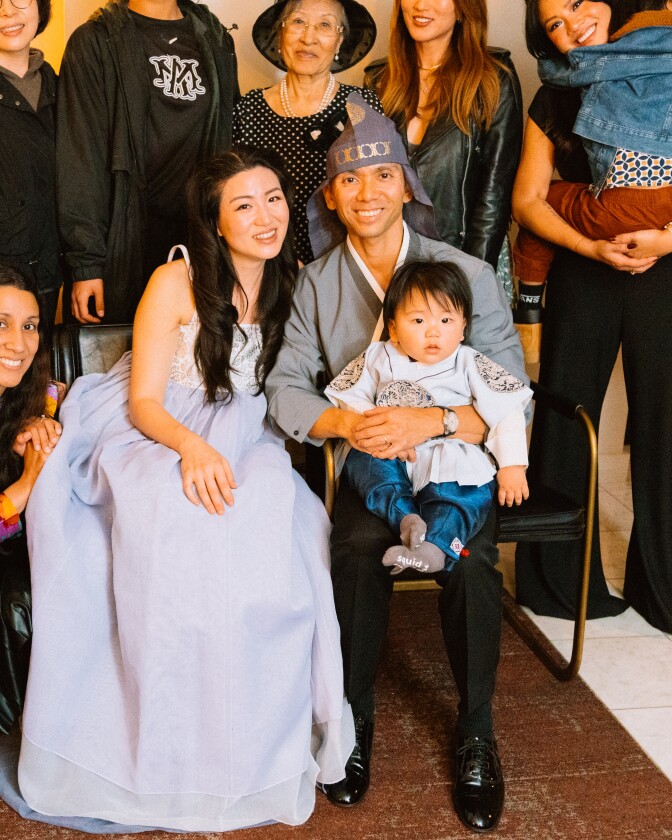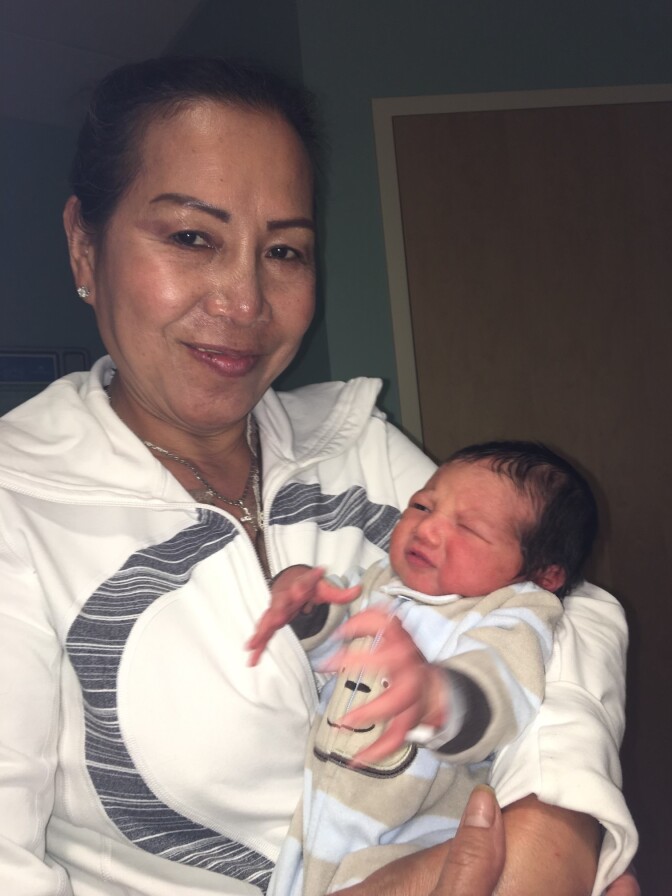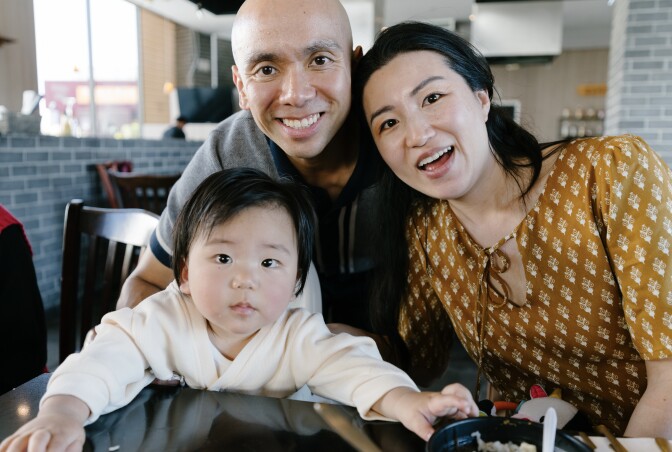For months, Arthur Yu wondered if he could find someone to donate stem cells to save his life.
The 41-year-old media strategist and new father from Miracle Mile had been diagnosed with a fatal disease — acute myeloid leukemia or A.M.L. — last March. A stem cell transplant would stimulate the growth of healthy new blood cells and give him an 80% chance of a cure.
With no viable donors among immediate family in the U.S., Yu’s relatives in the Philippines took cheek swabs to see if they were a match. Out of the group, a 46-year-old cousin living in the countryside emerged this summer as the strongest match, and just as importantly was willing to hop on a plane to take part in the medical procedure.
How You Can Help
You can become a blood stem cell or marrow donor by joining the NMDP (formerly known as the National Marrow Donor Program).
You can register here. You must be:
- Between the ages of 18 and 40.
- A resident of the United States or one of its territories or freely associated states
- Able to meet certain medical guidelines
If only it were so easy.
His cousin’s request to come to the U.S. to make the donation was denied Dec. 18.
“It was shocking,” Yu said. “We knew it was a possibility but it felt like it was a low risk.”
Yu and his family are now racing against time to try to reverse the decision, and have sought help from the office of U.S. Sen. Alex Padilla, which says it has made a congressional inquiry on behalf of Yu’s cousin.
Yu is also hoping to bring attention to a general need for visas in medical emergencies.
"I'm not the only one, and I'm not going to be the last one," Yu said.
Overseas help
Yu has quickly discovered he’s not the only cancer patient with a case mired in the U.S. immigration system, his being only the latest to underscore inequities facing some in need of transplants from overseas relatives.
The Philippines is one of the countries in which nationals are required by the U.S. to get a travel visa for tourism or business. (Nationals from more than 40 countries — more than half of them in Europe — do not need a travel visa.)
In denying the application of Yu's cousin, the State Department cited a section of immigration law, indicating the cousin had not proven he would return to the Philippines after a temporary stay in the U.S.

Yu has since connected with a network of cancer patients from immigrant families whose relatives in Asia, Africa and Latin America have struggled to get visas to come make life-saving donations.
“Many of us non-Caucasians are first-gen, second-gen (Americans) and most of our gene pool are back in our parents’ home countries,” Yu said.
To complete the visa application for Yu's cousin, his oncologist at Cedars-Sinai Medical Center submitted a letter stating the need to conduct a transplant quickly and with a suitable donor.
Dr. Ronald Paquette, medical director of the transplant program at Cedars-Sinai, said he hasn't seen many other patients run into the immigration hurdles that Yu has.
"It's a life-saving request that makes a profound difference in the life of the recipient — who's an American citizen," Paquette said.
Paquette said medical breakthroughs have now made it possible for transplants to be successful with donations from extended family members who are not fully matched on genetic markers.
"Ten years ago, we certainly couldn't do it," Paquette said.
But the ability — and desire — by extended family to provide donations is being complicated by U.S. immigration law.
Humanitarian parole
Yvonne AiVan Murray of Garden Grove was in a similar battle as Yu several years ago. In 2017, her mother Helen Huynh, who like Yu had A.M.L., was counting on her sister to come from Vietnam to make a stem cell donation.
But Vietnam is one of the countries where nationals need travel visas. The sister's application was denied several times, leading Murray to wage a public campaign for her aunt to gain into the U.S.

By the time Murray succeeded in bringing her aunt to the U.S. through humanitarian parole, her mother’s health had deteriorated to such a degree that the transplant was not as effective and Huynh died in 2018 at age 61.
Murray felt betrayed that her mother’s treatment was delayed in a way that other Americans' care is not.
"I can tell you she was the most patriotic person,” Murray said. “She loved this country. And she was so grateful for every little thing.”
Murray says she has since been approached by dozens of patients and their families for help. She's been advising Yu to take his cousin’s visa fight public, which he has done on social media.
Yu’s cousin Noel Talania is appealing the decision and plans to make his case in an interview at the U.S. embassy next week.
Yu is staying hopeful that this time the visa application will be accepted, and he doesn't have to resort to seeking a humanitarian exemption — not only for him but his wife Alice and their 14-month-old son, Abel.
“I am making plans for when I get out the other side,” said Yu, who's already been through four rounds of chemotherapy. “For me, I think the best motivation I can have is to see a future where this is finished.”









